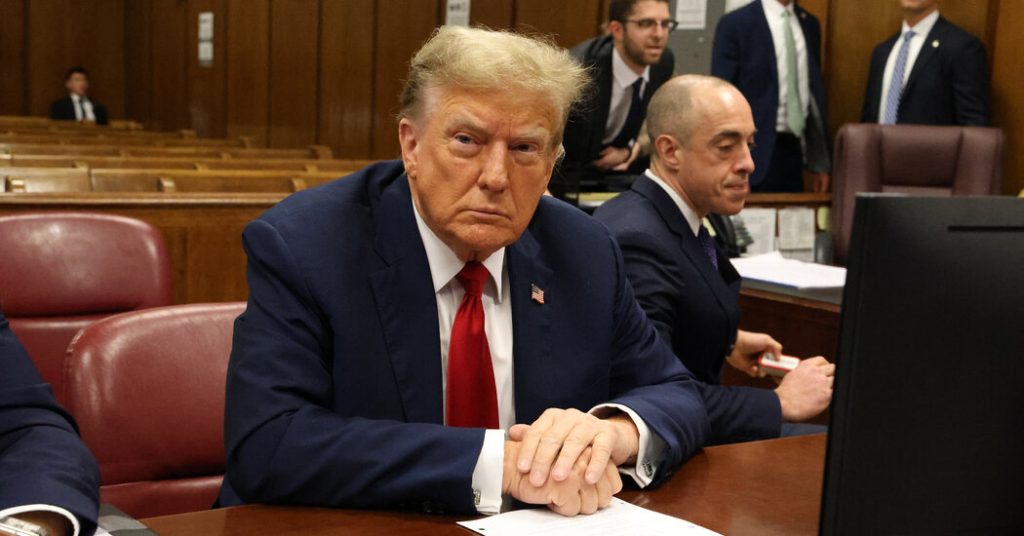New York prosecutors, along with Donald Trump and his attorneys, appeared in a Manhattan courtroom for the beginning of the first criminal trial of an American president. Trump is facing 34 felony counts related to falsifying business records to cover up a sex scandal during his 2016 campaign. If convicted, he could potentially face up to four years in prison. However, the jury selection process hit a snag as more than half of the initial pool of 96 prospective jurors were dismissed for indicating that they could not be impartial, resulting in zero jurors being chosen on the first day.
The trial, which is expected to last about six weeks, will be a crucial moment for both the prosecution and the defense. The defense, in particular, will face challenges in finding impartial jurors in Manhattan, where much of the population has already formed opinions on the case. The defense will be seeking potential jurors who are working class individuals, such as city workers like firefighters, police officers, and sanitation workers, in order to build a favorable jury for Trump.
In Israel, Prime Minister Benjamin Netanyahu is navigating conflicting pressures as he weighs a response to Iran following a recent missile and drone attack. While some members of his government are calling for an immediate military response, international leaders, including President Biden, are urging for de-escalation. Netanyahu’s war cabinet met to discuss the situation, but no response has been made yet, with the government signaling a return to normalcy by lifting restrictions on large gatherings and reopening schools.
Scientists have issued a warning about the unprecedented threat to coral reefs due to record ocean temperatures, causing widespread bleaching on a scale never seen before. The National Oceanic and Atmospheric Administration projected that the current bleaching event would become the most extensive on record within weeks. More than half of the world’s coral area has experienced bleaching-level heat stress in the past year, with the figure increasing by about 1 percent per week.
In the realm of legislative action, Congress is targeting Chinese drug companies like WuXi AppTec due to concerns about the security of Americans’ genetic information and U.S. intellectual property. While these companies play a crucial role in the development and production of essential therapies for various illnesses, lawmakers are considering measures that could impact their operations and drug supply pipelines. Drug executives have cautioned that removing these companies from the American market could result in a significant delay in drug development and availability.
The late artist Faith Ringgold, known for her narrative quilts depicting Black life experiences, had a career that existed outside the establishment of major museums and galleries for most of her life. Ringgold’s art, which combined personal and political themes, focused on social justice and was often overlooked by mainstream institutions due to factors such as race and gender. However, in recent years, her work has gained recognition, with MoMA acquiring some of her pieces. Lastly, the debate over the use of artificial intelligence to enhance film restoration is ongoing, with some critics expressing discomfort over the lack of imperfections in the final products. Filmmakers are using AI technology to sharpen visuals in older movies, but the impact on the viewing experience remains a point of contention among audiences.


